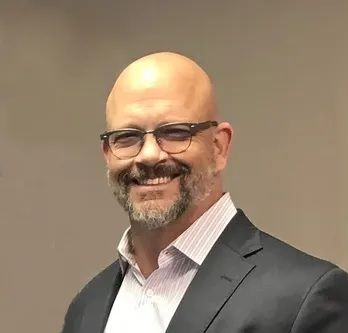The Connection Between Depression & Stroke
Depression following a stroke is a fairly common occurrence as stroke survivors must adjust mentally and physically to changes in what they can and cannot do. For patients with a previous history of depression, the condition can be amplified. Understanding the psychological impact of a stroke and offering early intervention and support is just as critical as physical, occupational, and speech therapy.
Medical Experts Offer Insight
Physical medicine and rehabilitation specialist Dr. Kirill Alekseyev (right, top) works with patients at PAM Health Rehabilitation Hospital of Dover. Dr.
“Depression may develop because most of the time stroke survivors who come in were previously independent, and now they require a lot of assistance following the stroke,” said Dr. Alekseyev. “It is a challenge for any individual to come to terms with accepting that they now have new deficits. They may also need support from their family, which is crucial sometimes for being able to go home safely. Younger stroke patients may also struggle because they had hobbies and activities they liked doing that they may be unable to do until they relearn certain skills or improve their function. Patients who had family members experience a stroke previously may have memories of dealing with that, which can cause even more depression when they find themselves in the same situation.”
Explore PAM Health's Rehab Hospital in Dover, Delaware
Dr. Jason Miller (right, bottom), a board-certified psychiatrist with Southtown Psychiatry who also sees patients at Voyages Behavioral Health of Sugar Land, concurred. From a psychiatric perspective, he said, stroke survivors might need anything from supportive care up to grief counseling as they learn to adjust to new deficits.
Depression Following a Stroke Is Common
“After a stroke, depression is common,” said Dr. Miller. “Approximately one-third of individuals after a stroke will experience clinical depression. This is unrelated to the region of the brain that was involved in the stroke. However, individuals experiencing strokes in the frontal region can also have other behavioral symptoms such as disinhibition, poor concentration and significant personality changes.”
With 24 years of patient care experience, Dr. Miller has seen the connection between a stroke and mental health. “Depression after a stroke is likely multifactorial,” he said. “There are inflammatory changes that occur after a stroke that can possibly contribute to the onset of depression from a physiological standpoint. However, depression also can occur as the patient adjusts to new deficits. In people who already struggle with depression, these symptoms can be magnified.”
Dr. Miller also added that after a stroke, patients might often feel vulnerable and insecure. “They may worry that the deficits they now experience may make them less valuable to their loved ones,” he said. “Additionally, the physical changes associated at the brain level may make it more difficult for individuals to control their emotions. These symptoms all tend to improve in time. Family members can help by understanding that increased emotionality is a symptom of strokes and not a case of their loved ones failing to adjust.”
Explore PAM Health Rehabilitation Hospital of Sugar Land
Early Intervention Is Key
Both doctors agree that early treatment and support is essential to promote a successful recovery. “The best treatment for stroke is early therapy physical therapy, occupational therapy, and speech therapy, as well as neuropsychology,” said Dr. Alekseyev. “It is important to strengthen physical function and work on speech recovery and also to address issues like anxiety and underlying depression and coming to terms with new functional deficits.”
Dr. Miller said that counseling and anti-depressants can significantly improve post-stroke related depression. Understanding the signs and symptoms of depression can be helpful for family members or loved ones providing support to the patient.
Dr. Miller explained that some of the signs of depression may include “decreased desire to be around loved ones, decreased enjoyment of previously enjoyed activities, decreased interest in hobbies, a desire to socially isolate, and disturbed sleep.”
Furthermore, Dr. Alekseyev added that the recovery process and the patients’ expectations of it could also contribute to their mental health. If their progress is not going the way they were hoping, patients may become demotivated and depressed, making it even harder to recover physically and leading to a negative cycle. “Patients may also exhibit pain on the paretic side which can limit their functional outcomes and progression,” he said. “Patients may stop being as active or as social as they previously were, which can contribute to more immobility and worsening functional outcomes.”
Know the Signs. Ask for Help.
He advised that caregivers watch for subtle things like changes in daily habits and activities or not wanting to attend family functions or events with friends that they previously enjoyed.
In addition to understanding the signs and symptoms of depression in stroke survivors, Dr. Alekseyev encourages stroke risk reduction by controlling their blood pressure through not smoking, eating a healthy diet, exercising regularly, and taking any necessary medications.
“Stroke prevention is simple but is often overlooked. Depression is also very common and often overlooked,” said Dr. Alekseyev. “It is important to have frequent follow-ups with proper specialists for blood pressure control and depression management and also to be surrounded with supportive family and friends. There is a lot of literature out there about stroke prevention and depression as well as treatment, which is easily accessible to most patients. The hardest part is to ask for help.”